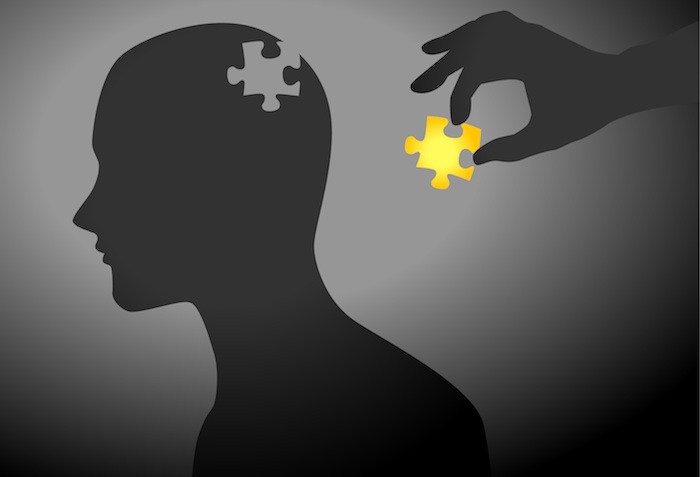Mental Health
Mental illnesses such as depression, anxiety and phobias are becoming more common, depression especially. There are lots of reasons for that, as discussed on the modern living page.
A simple phobia (or even a complex one) can often be dealt with very easily using Emotional Freedom Techniques (EFT). But for other mental imbalances, a more in-depth, multi-faceted approach will give a more permanent improvement.
Here’s how EFT and improved nutrition can help your mental health, whether it’s already fairly good, or you have major problems.
Whole foods for good mental health
In the 1930s, a dentist named Weston Price traveled round the world studying cultures still eating their traditional foods, and compared their health with those members of the same culture eating western foods. Those continuing to eat traditional diets enjoyed excellent physical and emotional health. But those who had changed to a western diet high in white flour, sugar, and canned goods suffered from a range of physical and mental health problems and were prone to infectious diseases. This huge deterioration occurred after just one generation of exposure to processed foods. His book “Nutrition and Physical Degeneration” is a landmark in the understanding of how food affects the mind and body.
Price found a lot of commonalities between the different traditional diets. The food was organic and high in nutrients, many times higher than our typical diet today. The diets were all high in animal fats, and none of the societies were vegetarian. Where people were unable to get enough meat or fish, they ate a lot of raw dairy products. Fermenting techniques were used, to increase the nutrient value of the food and preserve it. Grains, legumes, nuts and seeds were always soaked, sprouted or fermented to reduce harmful anti-nutrients and increase digestibility.
In contrast, our modern diet is high in sugar, refined grains, trans (processed) fats, pesticides, preservatives and additives. Processing techniques make our food less digestible, rather than more. We’ve been misinformed that nutritious and protective saturated fats are bad for our health, and so often avoid them. We suffer from nutritional deficiencies and are overloaded with toxins. Our digestive health breaks down and we start to get food intolerances.
Just a few of the ways this can impact on mental health:
- Food intolerances cause chemical imbalances in the brain, leading to brain fog, depression and many other mental or emotional problems
- Insufficient protein and fat contribute to lack of serotonin, and thus depression
- Sugar and food additives cause hyperactivity in many children
- An early symptom of Vitamin B12 deficiency is irrational anger
- B1 and zinc deficiencies can contribute to anorexia
- Lack of Vitamin D can contribute to insomnia
People are often stunned to discover that in many cases their debilitating mental health conditions such as chronic depression are exacerbated by foods they are consuming daily. The modern staples of wheat and sugar are two of the most common triggers. Returning to a nutrient rich diet, with a few carefully chosen supplements where needed, can transform our body chemistry, our brain chemistry and our mental and emotional health.
More info about Personalised Diet
Gut and Psychology Syndrome (GAPS)
Sometimes we can switch to a whole food diet, and eat in a more balanced way, and this will be enough to turn around our biochemistry. But sometimes more in depth healing needs to take place. Dr Natasha Campbell-McBride’s GAPS protocol is helpful for healing the digestive system, which can alleviate many mental health problems.
EFT for improved mental health
There is no doubt that traumatic experiences can cause major, ongoing emotional problems. But so can a multitude of smaller events that might seem nothing to the casual observer. Criticism, failure, self doubt, the overheard unkind remark, and limiting beliefs about yourself lead to a diminished sense of self worth. This can lead to obvious mental health issues such as depression or anorexia.
It can also contribute to problems nobody else might notice: lacking the confidence to go for that job you want or talk to the girl you fancy, being too shy to go to parties, being unable to communicate with your children, procrastinating till you miss the deadline, tension headaches, overworking to prove yourself, letting yourself be bullied, minor fears or major phobias. You might not be mentally ill, but you’re not entirely healthy either.
EFT (Emotional Freedom Technique) can be used to clear a wide range of things:
- the car accident that still gives you nightmares
- the memory of all the times your father called you stupid
- the phobia that stops you from using lifts
- the belief that you’re no good at sport
- your current anger at your son for forgetting to pick up the groceries
- the dull throb at the base of your neck that makes you snappy with everybody
- the negative body image that forces you to starve yourself
![]()

